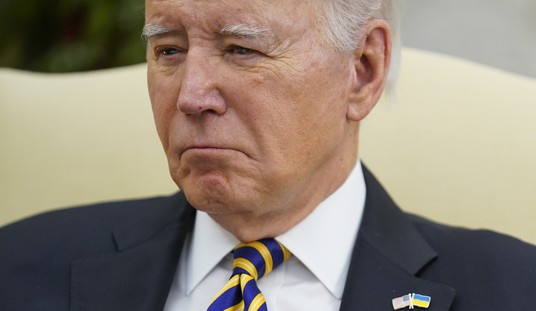Last week Billy Corgan, best known as the sole permanent member of the Gen-X band Smashing Pumpkins, created some Internet buzz when he remarked in a CNN interview:
You’re not supposed to talk about God, even though most of the world believes in God. It’s sort of like “don’t go there.” … I think God is the most unexplored territory in rock and roll music.
That quote prompted the interviewer to ask Corgan for his view on Christian rock, about which Chris Queen so eloquently commented this past Sunday at PJLifestyle. As a Jew I am rather ill-equipped to comment on the state of Christian rock, but another remark Corgan made that didn’t get reprinted multiple times got me thinking:
Most people are living lives of sort of survival. And constantly posing an existential crisis either through your fantasy or oblivion really has been pretty much explored in rock and roll, at least in the Western version of rock and roll. …We’ve sort of, kind of been through all of that.
I can speak to existential crises: Jews do suffering and do it well. But Jews also take action. Seeded in the age-old Rabbinic notion that good deeds get you into God’s good graces, American Jews have been acculturated into avid philanthropy and social activism advocating for a wide-range of well-intentioned causes. As a result, a Jew’s existential crisis never ends: When you aren’t being persecuted you have plenty of time to beat yourself or your fellow people over the head for not being a better Jew. This intrinsic guilt has become a force driving my own Jewish generation into personal success and the pursuit of social justice …and as far away from God (i.e., “judgement”) as humanly possible.
A while ago I observed that the Jewish teaching of the biblical concept of tikkun olam (repairing the world) had been manipulated in the same way 19th century social gospelists manipulated New Testament teachings to serve their socialist political aims. To manipulate scripture you must take God out of the picture, and in a world where no amount of good is ever good enough, social justice becomes enslavement to the notion of an impossible salvation.
Earlier this summer, Paula Bolyard asked the question: “What great things will God do with our generation if we admit our inability to fix this on our own?” She cited actor Rainn Wilson’s remarks on “The Next Big Thing”:
I think there’s another revolution coming. I’m not sure what it’s going to look like but I think it’s going to be very interesting and it’s going to unfold over the next ten years. And I think it needs to be a spiritual revolution because I think that our systems are broken. I don’t think our political system will ever work. No matter how great a man, if you cloned JFK and Abraham Lincoln and made them president it wouldn’t matter. Our system is just too corrupt and too broken.
Corgan’s remarks are revolutionary not because he noted the boring nature of Christian rock, but because he detailed the transition an individual and a nation must make in order to grow and improve. Talking about God isn’t talking about religion, or what certain people of a particular religion think about God — talking about God is talking about yourself and your nation in relation to the Almighty.
And, lest we be considered rude, talking about God should also involve talking to God: “If my people, who are called by my name, will humble themselves and pray and seek my face and turn from their wicked ways, then I will hear from heaven and I will forgive their sin and will heal their land,” the verse goes. Considering that the champion of our faith spoke to God face to face “as one speaks to a friend,” I’m pretty sure He’ll reply. We already have an entire book of His answers to give us a running start.








Join the conversation as a VIP Member